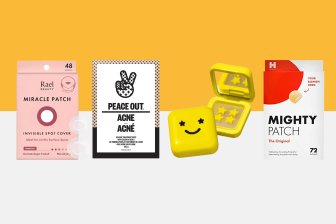With the holidays fast approaching, the stress of travel, tight budgets and family get-togethers can have an impact on mental health — but experts say there are steps you can take to manage the holiday chaos.

Thomas Ungar, chief of psychiatry at North York general hospital, says that while the holidays don’t specifically create mental health problems then can exacerbate any ongoing issues like depression or anxiety.
“People who have real ongoing mental health problems have it year round,” said Ungar. “It’s there before and after the holidays…. It doesn’t really cause illness it adds to certain people’s condition or pushes them over the edge.”
READ MORE: Need help over the holidays? Here are the numbers to call in Alberta
Added to the stress of crowded shopping malls or preparing a family dinner for invading relatives, Ungar says the pressure of high-expectations can make things worse.
Celebrating a Christmas, Hanukkah, Kwanzaa or Ramadan after a loved one has died can also be especially difficult.
- What is a halal mortgage? How interest-free home financing works in Canada
- Capital gains changes are ‘really fair,’ Freeland says, as doctors cry foul
- Ontario doctors offer solutions to help address shortage of family physicians
- Canada will take bigger economic hit than U.S. if Trump wins election: report
Greg Dubord, an assistant professor of psychiatry at the University of Toronto, says finding a way to remember someone who has passed away can help get passed the “anniversary syndrome.”
“Commemoration feels good for many,” Dubord said in an email. “Go to a place the person liked, donate to a memorial, sign-up for a fund-raiser for a cause, listen to favourite song of the person, or make a favourite meal of the person who died to eat alone or with others.”
READ MORE: Syrian refugees expected to face mental health challenges
The holidays are also about parties. Whether it’s at the office, with family or with friends, many people will find themselves reaching for that extra glass of wine, beer or favorite seasonal cocktail.
Binge drinking is classified as men having five or more drinks and women consuming four or more drinks, in about two hours. It’s already a problem for Canadians. A recent report from the World Health Organization found 23.1 per cent of Canadians engage in binge drinking, including a whopping 31.2 per cent of male drinkers.
“The big idea I like is the idea of setting limits,” said Ungar. “Reduce the time you’re going to be at events, maybe reduce the number of events…If you have five events in two days, so say to yourself ‘I’m not going to have anything to drink at lunch but I’ll go to the dinner parties.”
Here are five tips from professionals to get you through the holidays:
- Lookout for number one: Be responsible for yourself, not overly responsible for others. A good host sets the conditions for a nice event, it’s up to the guests to behave and enjoy themselves.
- Have an exit plan: If things become overwhelming at a family gathering or social function, go for a walk, grab a coffee, visit a friend, or leave early if required.
- Avoid hot topics: As tempting as it can be, the holidays are not the time to rehash old arguments. “If you need to, write down possible neutral topics in advance and plan how you’re going to react,” writes Lara Propst, a psychiatrist at North York Hospital in Toronto.
- Get outside: “Physical exercise is a potent anxiolytic and anti-depressant,” says Dubord. Walking, running or playing an outdoor sport can help relieve stress. “Get out in the light, as even cloudy skies may be better than interior lighting,” he adds.
- Reach out to someone: Ungar says if you are getting overwhelmed or a pre-existing mental illness flares up then get help; call a crisis line, see a health professional, family doctor, or if needed emergency rooms are 24 hours.





Comments